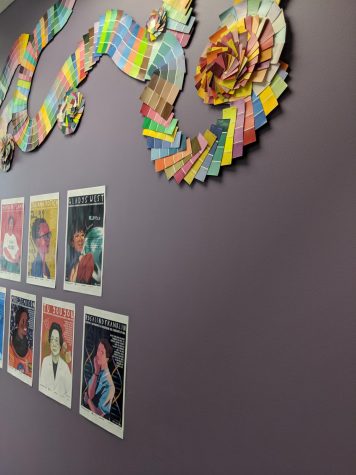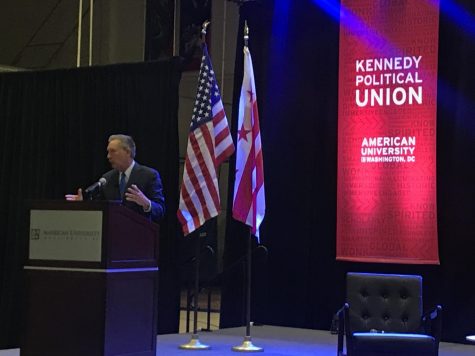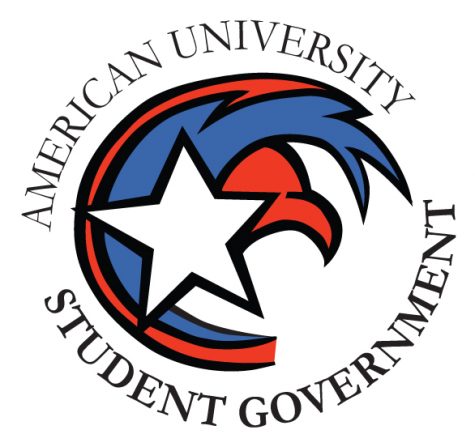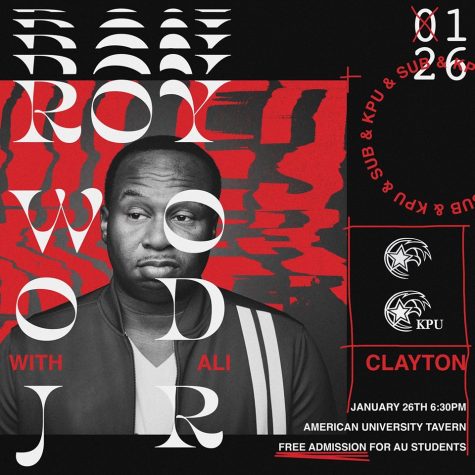Paying for Your Unpaid Internship: Affording a Future
Brenna Raffe, an AU freshman, would love to get an internship. But between her part-time work study job at the Davenport Coffee Lounge, full course load as a double major in literature and public relations, sorority membership and participation in club basketball, it seems unrealistic.
“Even thinking about doing an internship during the school year next year gives me extreme anxiety,” Raffe said.
Many students want to find an internship, but are held back because they cannot afford to work for free.
“If I worked a paid internship that would be phenomenal—I would be killing seven birds with one stone,” Raffe said. “It was my impression that in order to get a paid internship, you would probably have to get an unpaid one first, and do well in that and climb the internship ladder.”
The reality is that for those looking to intern in the public sector or for non-profits, more internships are unpaid. According to the National Association of Colleges and Employers, which surveyed 38,000 college students in 2013, 48 percent of respondents participated in unpaid internships. Of these unpaid interns, 21 percent worked for government organizations, 41 percent worked for non-profits and 38 percent worked for the private sector. In contrast, only 11 percent of paid interns worked for the government while 16 percent worked for non-profits.
Those who must support themselves and cannot intern face setbacks in getting work experience that makes them competitive in the job market when they graduate.
With some students forced to choose between jobs and internships, a question arises: is it better for there to be many internships that only affluent students can afford to accept, or for there to be fewer, more competitive paid internships?
AU proudly advertises that 85 percent of students complete internships before graduation. But many prospective students do not realize the demanding nature of applying for internships or the extra expenses. These include transportation and paying for course credit, in order to participate in what has become a seemingly mandatory aspect of AU student life.
The U.S. government doesn’t always do its part to help either. Members of Congress offer hundreds of internships, but many are unpaid positions. Congress may take advantage of the legality of unpaid internships, since government organizations do not have to follow the same rules as private firms.
The U.S. Department of Labor compiled a list of guidelines in 2010 under The Fair Labor Standards Act of 1938 that outlines the requirements for an unpaid internship. The law requires that an unpaid internship has to be similar to an educational experience, take place for the benefit of the intern, not displace regular employees and ensure that employers “derive no immediate advantage” from the intern’s activities. Furthermore, both the intern and the employer must understand that the internship will take place for a fixed time and that the intern will not receive wages. These requirements apply to all for-profit organizations.
However, these rules do not apply for government and nonprofits. Since AU is known for its involvement in public service, the many students competing for coveted positions in the public sector find themselves fighting to work for free. When only the more affluent can afford to work for free, it undermines the diversity of those gaining experience in government early on.
Intern rights to compensation in the private sector have come into the spotlight in recent years, especially in the court system. In a 2013, two former unpaid interns at Fox Searchlight claimed that they did administrative work that would have normally required paid employees. Their victory in the Manhattan District Court is seen as a legal victory for unpaid interns.
In another court case filed by unpaid interns who worked at Condé Nast magazines, the plaintiffs did not fare so well. A different Manhattan district judge denied their request for a judgment, ruling that the media company did nothing wrong and the interns were not entitled to compensation. Although the judges for both cases used the Department of Labor’s guidelines, their interpretations widely differed. The precedent they set has become a gray area for unpaid interns and employers alike.
Unpaid internships, though legally contentious, are at least plentiful. There are thousands of unpaid internships in DC, including working in government, national advocacy groups and non-profits.
“If I worked a paid internship, that would be phenomenal—I would be killing seven birds with one stone.”
Zoe Crain, an AU senior in the School of Public Affairs, has worked at two unpaid internships on the Hill and also had paid internship positions.
“I think there’s a place for unpaid internships,” Crain said. “But by the time you get to junior year, and you’re really thinking seriously about being able to live on your own, having an unpaid internship is really hard.”
Teddy McCullough, also a senior in SPA, had an unfulfilling paid internship at a real estate agency last summer. Although the pay was great, he hated the work.
“It was probably the worst work experience I’ve had, but money is a big driver when you’re a college student and you’re trying to pay for rent,” he said.
AU does have some resources to help students who cannot afford to complete an internship, but the options are limited.
The AU Career Center has a small stipend for students who work at unpaid internships called the Eagle Internship Fund. The center’s website says that these stipends “allow students to participate in unpaid internships in the public and nonprofit sectors and support AU’s tradition of developing professional experience through public service.” But there are only 15 to 20 stipends, and they are only awarded to Pell Grant recipients.
To supplement this program and hopefully expand internship aid to more students, AU Student Government is beginning a project to provide transportation stipends for students with financial need. The pilot program will provide funds to students enrolled in a political internship class in SPA; SG hopes the program will expand to all students if it is successful.
William McNamara, SG president Sophia Wirth’s chief of staff, is working on starting this program. “Right now, what we can at least do [is] help students break even,” he said.
But just breaking even will not do for Raffe, who needs to constantly hold a paying part-time job.
“I’m spending so much money to be in this city, at a private school, to have access to the places that I would want to intern,” Raffe said. “And it worries me that I won’t be able to capitalize on that enough that it will be worth paying for private school.”






